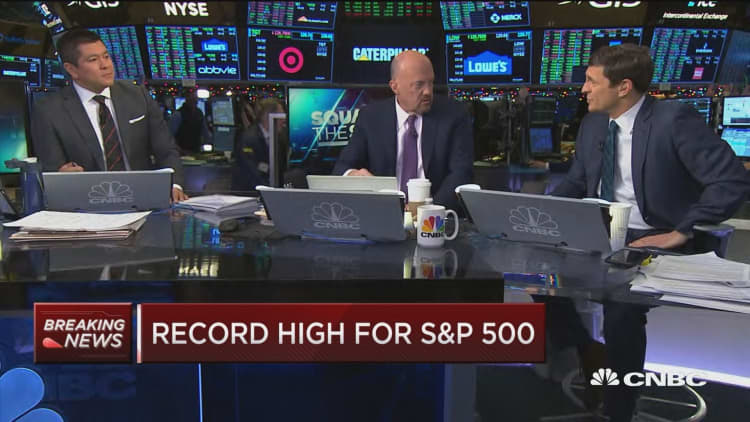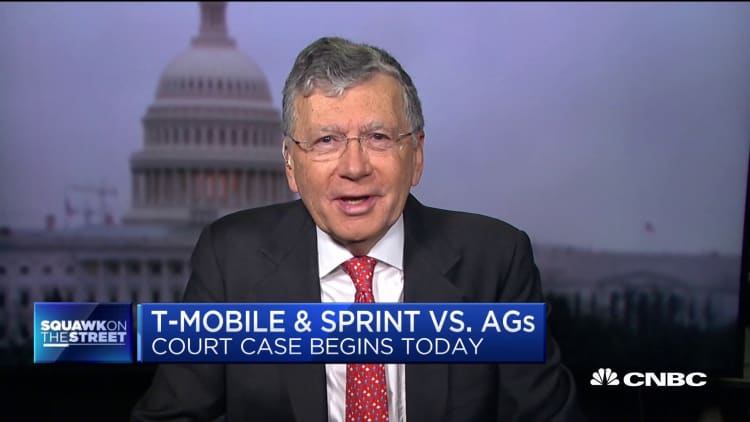
China's lead over the U.S. in the race to deploy 5G wireless networks is reminiscent of the early stages of the space race with the Soviet Union, CNBC's Jim Cramer said Tuesday.
"It's kind of like Sputnik, when the Russians were ahead of us," Cramer said on "Squawk on the Street." "It's very similar."
The Soviet Union scored multiple early victories over the U.S. in the space race; first in October 1957 by putting a satellite, Sputnik 1, into Earth's orbit before America. Then again in April 1961, Yuri Gagarin became the first human in space. The Soviet Union's Luna 2 was the first spacecraft to land on the Moon, in September 1959. However, the U.S. would go on to put a person on the Moon before the Soviet Union, in July 1969.
The competition between the U.S. and China over 5G technology has been in focus this year as the Trump administration took steps to crackdown on Chinese tech giant Huawei, which it accuses of being a national security risk.
5G is a next-generation mobile network that promises faster data speeds, lower latency and other capabilities to support emerging technologies such as self-driving cars. Coverage in the U.S. is not yet widespread, but expectations are high for increased coverage in 2020.
The Chinese government, meanwhile, has embraced 5G faster than other countries, including the U.S. China has outspent the U.S. by roughly $24 billion in wireless communications infrastructure since 2015, according to a 2018 Deloitte report.
In November, China turned on its 5G network, rolling out commercial services in 50 Chinese cities.
T-Mobile has launched a nationwide 5G network in the U.S., but it uses low-band 5G, which means it's capable of providing slightly improved speeds inside buildings and is available in far more places than what competitors offer.
Some of the 5G Ultra Wideband networks from AT&T and Verizon provide the opposite. They provide super fast speeds, but only work in really small pockets when standing near a tower outside.
Despite China's current lead in 5G, experts say it hardly means the race is over, arguing the U.S. track record of innovation is a long-term advantage.
Some also point to the potential merger between T-Mobile and Sprint as a key way for the U.S. to close the 5G gap with China.
Cramer is among them, saying Tuesday that he believes T-Mobile's John Legere when the CEO says "we will not be able to have a credible 5G competitor without that merger."
The deal has received approval from the Department of Justice and the Federal Communications Commission, but the two companies are arguing their case in federal court as part of lawsuit from a group of state attorneys general. The states argue the wireless industry is already too consolidated to further squeeze four main competitors into three.
Others, such as former FCC Chairman Reed Hundt, said the merger will improve the wireless industry's ability to rollout robust 5G networks. "This trial is very, very much about who will be able to get spectrum to build these 5G networks," Hundt told CNBC last week.

— CNBC's Todd Haselton contributed to this report.


